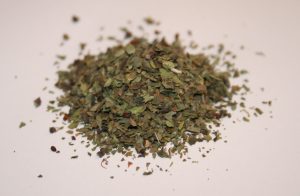The fight for marijuana legalization is turning a corner in the U.S. Nowhere is the change more evident than in Michigan, where recently an anti-marijuana action committee has flipped its stance in an attempt to try to gain control of state regulations, according to a Detroit Free Press report. The group, The Committee to Keep Pot Out of Neighborhoods and Schools, has been fighting a ballot proposal to legalize recreational marijuana in the state. However, as it is becoming more clear the initiative has growing support, the group is trying a different tactic: encouraging state legislators to fully legalize marijuana by passing an adult-use bill.
Michigan, where recently an anti-marijuana action committee has flipped its stance in an attempt to try to gain control of state regulations, according to a Detroit Free Press report. The group, The Committee to Keep Pot Out of Neighborhoods and Schools, has been fighting a ballot proposal to legalize recreational marijuana in the state. However, as it is becoming more clear the initiative has growing support, the group is trying a different tactic: encouraging state legislators to fully legalize marijuana by passing an adult-use bill.
As our attorneys can explain, those opposing recreational cannabis in the state see the writing on the wall. They know if they allow the issue to appear on the November ballot, it has a strong chance of passing. However if group members can convince the Legislature to take up the initiative and amend it with strict regulations akin to the current medical marijuana guidelines, they are hoping to get a law on the books that is more restrictive than what voters might pass. One of the key differences would be how licenses are issued. Medical marijuana establishments currently obtain licenses through a board put in place by the governor, as well as House and Senate leaders. The ballot initiative would instead put licensing in the hands of the Licensing and Regulatory Affairs Department. Continue reading
 Cannabis Law Group's Medical Marijuana Legal Blog
Cannabis Law Group's Medical Marijuana Legal Blog





 cannabis convictions. In San Francisco, for example, Code for America is assisting the District Attorney’s office in identifying people eligible to have their marijuana arrest records cleared, according to a report by
cannabis convictions. In San Francisco, for example, Code for America is assisting the District Attorney’s office in identifying people eligible to have their marijuana arrest records cleared, according to a report by  cannabis. Oregon in particular is reporting an excess in cannabis production, which is driving down the price of marijuana at dispensaries across the state, according to
cannabis. Oregon in particular is reporting an excess in cannabis production, which is driving down the price of marijuana at dispensaries across the state, according to  down, largely due to a scare campaign that positioned the 10 pre-designated cultivators as a monopoly. In 2016,
down, largely due to a scare campaign that positioned the 10 pre-designated cultivators as a monopoly. In 2016,  in common with the natural drug as a circle to a square. Lawmakers have long been chasing down these dangerous substances, to no avail. But the Illinois State Senate is taking steps to close loopholes that manufacturers have been manipulating once and for all, according to
in common with the natural drug as a circle to a square. Lawmakers have long been chasing down these dangerous substances, to no avail. But the Illinois State Senate is taking steps to close loopholes that manufacturers have been manipulating once and for all, according to  cannabis-related activity is still banned: No recreational sales, no medical sales, no commercial growing, no testing, no distribution, no manufacturing. Residents can grow indoors for personal use or if they are a caretaker, but that’s it.
cannabis-related activity is still banned: No recreational sales, no medical sales, no commercial growing, no testing, no distribution, no manufacturing. Residents can grow indoors for personal use or if they are a caretaker, but that’s it.
 Online media giant YouTube has enacted a host of more stringent enforcement guidelines, seemingly at random, restricting and even shutting down many channels its representatives claim violate its policies. Gun-related channels in particular have come under scrutiny. A bit more perplexing, however, is the site’s more aggressive stance against cannabis-related videos recently, sending warnings, flagging content, and shutting down entire channels, particularly those that seek to educate and advocate. Even after complying with warnings, channel owners said they were suspended. Many of the channels had been around for years, some almost since the beginning of YouTube, according to a
Online media giant YouTube has enacted a host of more stringent enforcement guidelines, seemingly at random, restricting and even shutting down many channels its representatives claim violate its policies. Gun-related channels in particular have come under scrutiny. A bit more perplexing, however, is the site’s more aggressive stance against cannabis-related videos recently, sending warnings, flagging content, and shutting down entire channels, particularly those that seek to educate and advocate. Even after complying with warnings, channel owners said they were suspended. Many of the channels had been around for years, some almost since the beginning of YouTube, according to a  marijuana for research: University of Mississippi. This is in spite of a 2016 decision to allow DEA to approve medical marijuana manufacturers for research purposes and dozens of applications to join the pool, according to a
marijuana for research: University of Mississippi. This is in spite of a 2016 decision to allow DEA to approve medical marijuana manufacturers for research purposes and dozens of applications to join the pool, according to a 